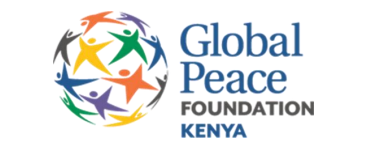By Laura Slessor
On the occasion of the UN Day 2019, the United Nations in Kenya named the Global Teacher Prize award winner Brother Peter Tabichi as the UN Person of the Year 2019.
The UN Person of the Year Award which is given every 24th October during the UN Day celebrations was launched in the year 2002 to recognize individuals or institutions who have inspired the nation and whose contribution in society makes the world a better place.
Last year the award went to the world marathon record holder Eliud Kipchoge who recently became the 1st human being to complete the marathon in less than 2 hours.
The 37 year old Brother Tabichi was recognized for being a living witness to the power of education and the inherent value and dignity of the teaching profession in a colorful event presided over by dignitaries including UN resident coordinator for Kenya Siddharth Chatterjee, Nakuru County Governor Lee Kinyanjui and Education Principal Secretary Dr. Kipsang Bellio and the UNESCO Regional Director for East Africa, Dr. Ann Therese Ndong.
Dr. Ndong who nominated Brother Thabiti for the award said that Peter had demonstrated that great teachers don’t have to be confined to the classroom. Nakuru County Governor, Hon. Lee Kinyanjui congratulated the Global Teacher and said that his victory was a celebration of the many sacrifices made by teachers across the world and that his actions reminds us of the role of teachers as change agents.
Speaking at the ceremony, the United Nations Resident Coordinator in Kenya Mr. Siddharth Chatterjee praised Peter as the very epitome of selflessness and “service before self’ and added that the Sustainable Development Goal number 4 is to ensure inclusive and equitable quality education and promote lifelong learning opportunities for all.
While receiving the Award, the Maths and Physics teacher at Keriko Secondary School in Nakuru, called on governments to make sure education, especially for girls, is a right and not a matter of luck. He said that around sixty one million girls of school going age around the world do not get the chance to go to school with a majority of them being from Africa. At the same time, 72 million children are in danger of missing education in Africa due to war, floods and other challenges. “Good education should not be a matter of luck but should be a right” said Brother Tabichi.
Brother Peter is a teacher at Keriko Mixed Day Secondary School in Pwani Village, situated in a remote, semi-arid part of Kenya’s Rift Valley, a region where drought and famine are frequent, 95% of pupils hail from poor families, almost a third are orphans or have only one parent, and many go without food at home and where drug abuse, teenage pregnancies and dropping out of school is common.
Despite these conditions Peter continues to be celebrated for his efforts to impact and change the lives of his students’ one at a time. He started a talent nurturing club and expanded the school’s Science Club, helping pupils design research projects of such quality that 60% now qualify for national competitions. He also continues to be recognized for his role in helping poor students access education using his salary. Peter uses ICT in 80% of his lessons to engage students, visiting internet cafes and caching online content to be used offline in class.
The Global Peace Foundation Kenya which has been on the forefront to transform education in Kenya was represented at the event by the Executive Director Daniel Juma Omondi who joined other dignitaries in congratulating Brother Peter Tabichi.
The Global Peace Foundation Kenya has been working with educators and other stakeholders in education to transform education to make it responsive to the challenges of the 21st century. Some of the education initiatives started by the Global Peace Foundation in Kenya include the Character and Creativity Initiative, the Great Places To School and Leap Hubs entrepreneurship incubation spaces in high schools.
GPF also collaborates with international organizations such as the Lemelson Foundation in the US in championing Invention Education and supports the OECD Learning Compass 2030which is a future-oriented framework for learning which orients students in a world of uncertainty and rapid change and helps them navigate towards the future we want.
